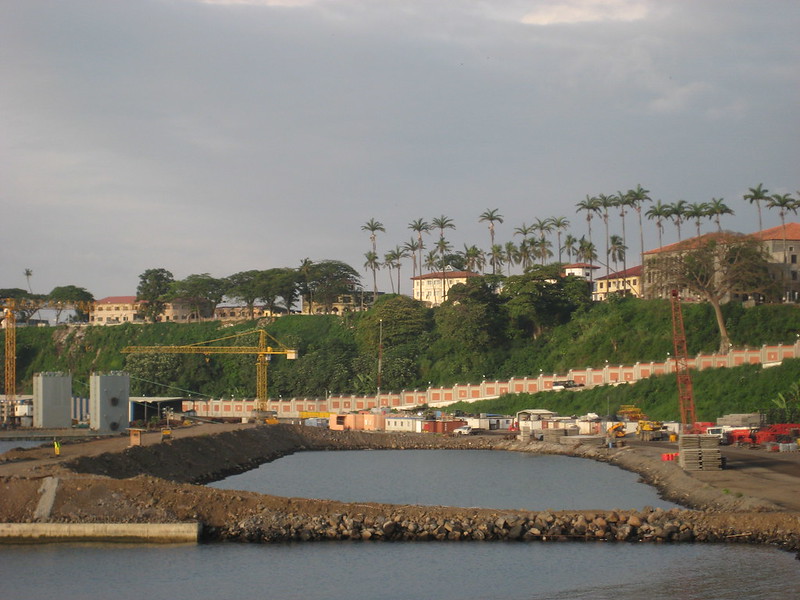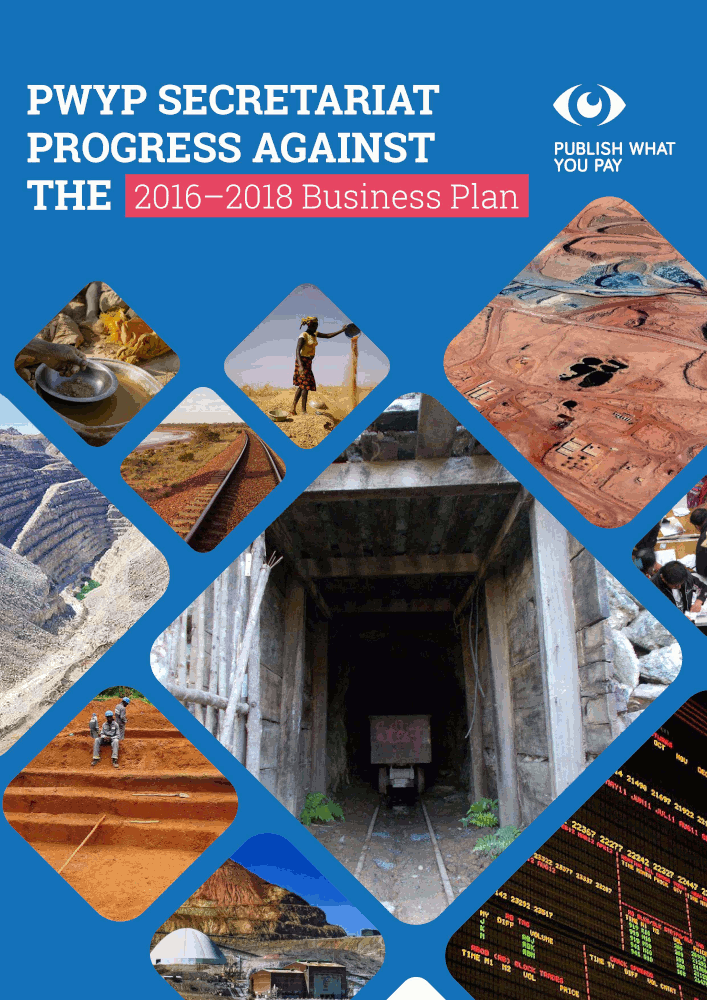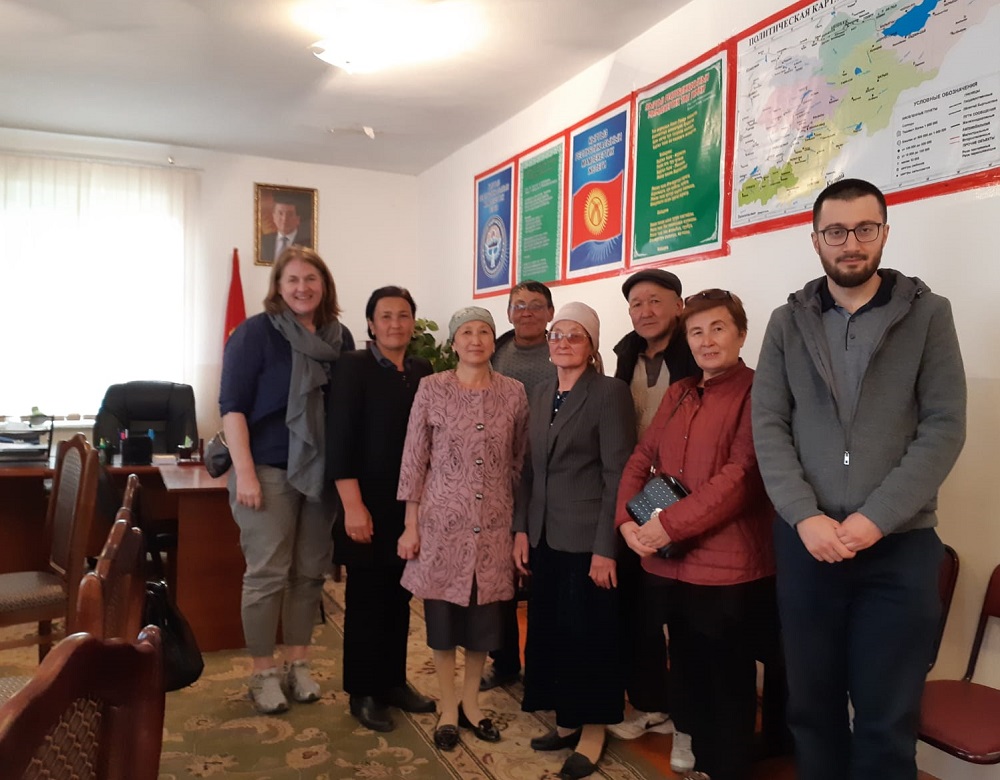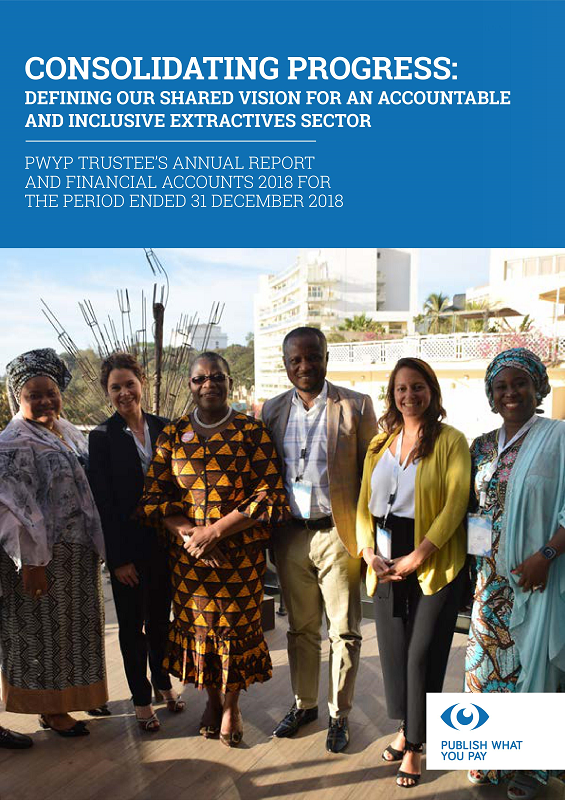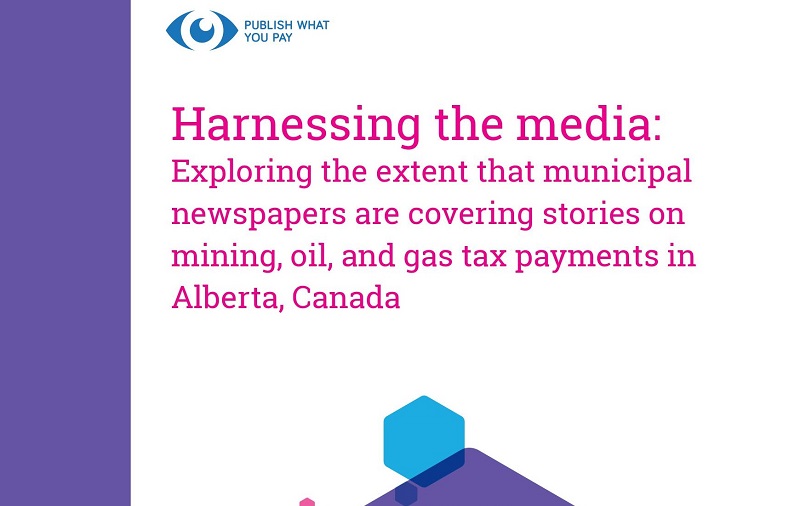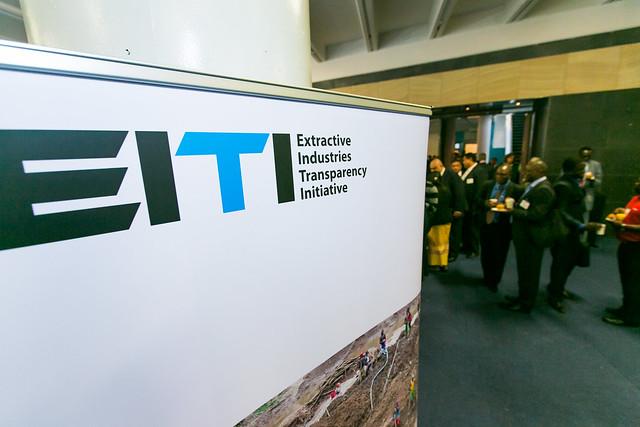News and resources
Explore our publications on a wide range of topics, to find the powerful facts, stories and approaches that underpin our work to make the extractive industry more open, accountable and participatory.
Civic Space in Equatorial Guinea – Information and Recommendations from civil society
The existence of an enabling environment for civil society – and particularly the ability for civil society to participate freely and actively in the EITI process as well as to contribute to debates about natural resources governance – is central to the EITI process. In line with EITI Requirement 1.3 civil society needs to be […]
PWYP Secretariat progress against the 2016-2019 Business Plan
In June 2019 the PWYP Secretariat commissioned independent consultant Brendan O’Donnell to conduct an evaluation of its work in line with its 2016 – 2018 Business Plan. This was to assess Secretariat progress made against the plan and inform the development of the next Secretariat plan. The evaluation was informed by desk research and 26 […]
Fighting for Informed Community Choices
Cathy Turner, PWYP’s new Director of Advocacy and Learning, met PWYP campaigner Gulnara Isbasarova in Kyrgyzstan, and was inspired by her achievements, what drives her and her ideas for bolstering women’s roles in our movement. A proud pastoral tradition still prevails in the bold, mountainous landscape of Kyrgyzstan’s Talas region. Half a day’s drive from […]
PWYP Annual Report 2018
Consolidating progress: defining our shared vision for an accountable and inclusive extractives sector PWYP Trustee’s Annual Report and Financial Accounts 2018 for the period ended 31 December 2018 2018 was a pivotal year both for the PWYP Secretariat and for the global PWYP movement. We entered the final year of our 2016-18 business plan, which […]
Industry allies in the fight for transparency
Extractive companies join PWYP’s call for improved legislation as the EU’s transparency directive is reviewed In 2013, the European Union (EU) passed game-changing new transparency legislation amending its Accounting and Transparency Directives to require extractive companies to disclose their revenue payments to governments around the world. The legislation applies to oil, gas, mining and logging […]
PWYP Congo Brazzaville: Scrutinizing SNPC’s commodity trading activities
State-owned companies are key actors in the management of extractive resources in many producing countries, especially when their mission is to sell the State’s share of oil. In many cases, however, these structures are very much influenced by the political game and do not transparently with regard to such factors as selling price, income received, […]
Shedding Light on Myanmar’s Jade Industry by Building the Open Data: Myanmar Jade Portal
Myanmar is the world’s leading producer of jade, a green hued gemstone that can be worth up to millions of dollars per kilogram. The main market in the world for jade is China, where it has traditionally been highly valued and associated with royalty. Right on China’s southern border is Myanmar’s Kachin state, where the […]
Equatorial Guinea: Leading human rights organisation forced to shut down, despite government pledge to improve civil society participation and join global oil and gas accountability initiative
A group of civil society organisations* condemn the move and call for the immediate reinstatement of the organisation Today, Publish What You Pay, Oxfam America, Natural Resource Governance Institute, Global Witness, EG Justice and LOGI Lebanon* firmly condemned the unwarranted dissolution of the Center for Studies and Initiatives for the Development (CEID), a prominent and […]
Harnessing the Media: Exploring the Extent that Municipal Newspapers are Covering Stories on Mining, Oil, and Gas Tax Payments in Alberta, Canada
In light of PWYP’s efforts to promote training, learning, and access to information by citizens, the question arises: To what extent are insights from disclosure reports being shared and understood by communities who host mining, oil, and gas projects in Canada? This project set out to contact journalists at Canadian municipal newspapers with the aim […]
New EITI Civil Society Board members join the EITI International Board
New EITI Civil Society Board members were selected to join the International Board of the Extractive Industries Transparency Initiative (EITI) for the three-year term June 2019-2022 at the EITI Conference in Paris on 17 June 2019. The new composition of the CSO representation on the EITI Board is: Jean Aimé Brice Georges Mackosso Commission Diocesaine Justice […]
Equatorial Guinea: A Move to Rejoin Anti-Corruption Group
Repression at Odds with Extractive Industry Watchdog’s Requirements (Paris) – Equatorial Guinea is seeking to rejoin a group that works to curb corruption in resource-rich countries, Human Rights Watch, EG Justice, and Publish What You Pay said today. The Extractive Industries Transparency Initiative (EITI) requires transparency around oil, gas, and mining revenue and activities and respect for civil society. […]
Democratic Republic of Congo: Jean Claude Katende, leader of the fight for human rights and transparency, facing death threats
Publish What You Pay (PWYP) calls on the authorities of the Democratic Republic of Congo to make every effort to ensure the safety of Jean-Claude Katende after he received highly concerning death threats. On Monday, 24 June 2019, Jean Claude Katendé filed a complaint against unknown to the Provincial Police Commissioner of the city of […]







